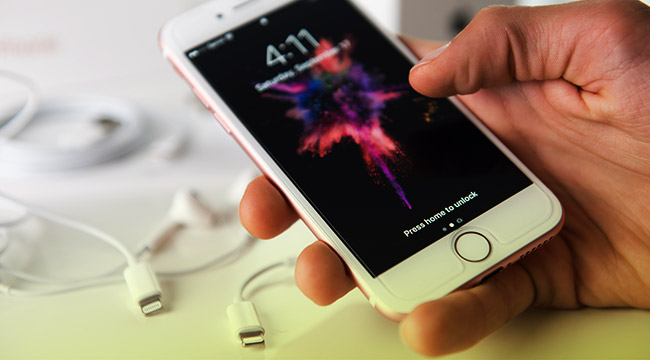
Now that the iPhone 7 is here and getting into the hands of eager users, the tech press is looking to the iPhone 8. Next year will be the tenth anniversary of the iPhone and Apple is widely expected to take the smartphone market in a new direction, especially on the heels of the subtle, but ultimately drastic, changes made to the iPhone with the 7.
One of the more credible rumors about the release is that, after years of testing, Apple is finally bringing wireless charging to the iPhone. This rumor arrives with every iPhone — the 7 was rumored to have it right up until it debuted. But if wireless charging really is finally happening, that might be a prelude to replacing your phone being a messy nightmare to an ecological disaster. And it also means that Apple will likely be getting rid of the ports altogether.
Why Apple Hates Ports
As we all know, this year Apple got rid of the standard headphone jack in favor of making you buy Bluetooth headphones, preferably those from the headphone company it already owns. The jury is out on whether that experiment has really worked, but it’s consistent with Apple’s philosophy of “closed architecture,” where it builds the hardware, controls the software, and nobody outside Apple — not even the people who buy their products — gets to fiddle with it. This is why everyone with Android can share phone chargers while Apple users are stuck with Lightning ports.
And Apple will allegedly have even more reasons to hate ports with the iPhone 8. It seems likely that the iPhone 8 will be made entirely from glass, and while drilling precision holes in glass is possible, it generally requires expensive tools and specialist knowledge to set up on an industrial scale. It’d be much cheaper for Apple to just do away with ports altogether, which is where wireless charging comes in.
The primary job of your phone’s Lightning or USB port is to get power to the battery; take that job away, and, as far as Apple is concerned, it’s just a useless data port people might use for purposes like “jailbreaking” iPhones (which Apple hates). Cutting the port will make the iPhone 8 even thinner, something consumers want. And since anything from data preservation to contacts can just be stored remotely, it seems like a no-brainer. But there are some consequences to wireless charging and a port-free iPhone that we should consider.
Apple’s Wireless Charging Would Be An Ecological Disaster
The market for stuff to attach to your phone is staggering: It made $20 billion in 2012, the year Apple switched to Lightning from its thirty-pin connection. That transition was awkward — some argued made deliberately so by Apple — and it resulted in billions of dollars of iPod toys filtering down to the e-waste recycling system.
Well before the iPhone came along, “recycling” electronic waste was more of a dream than a reality. As the US has no real laws against exporting toxic waste aside from making sure it’s tracked as it leaves the country, most e-waste is simply sent to China. Guiyu, in particular, is notorious for rapidly turning into a vast toxic scrapyard in the mid-1990s, something our smartphone obsession has only made worse.
It may not happen with the iPhone 8, but if Apple’s history is any indication, the Lightning port will be summarily dumped by the company. And when that happens, Guiyu will get yet another shipment of ton after ton of cables, chargers, and accessories.
It’ll also get a lot of future iPhones. Apple has steadily pushed to essentially render the iPhone unfixable, with the iPhone 7 gluing in the battery and Apple using more complicated screws and designs to prevent any third-party repair jobs other than screen replacements. If the iPhone 8 uses nothing but wireless communication and charging, one flawed line of code or one unfortunate drop that knocks a wire in the wifi card loose, and it’s essentially just a brick of smoked glass.
Finally, it’ll put consumers further in the grip of a company that has, especially lately, seen the course of business run less than smoothly. Apple Music users still resent Apple’s wholesale wiping of their hard drives, and considering the history of Beats, trying to pressure consumers into buying their headphones might raise a few eyebrows.







